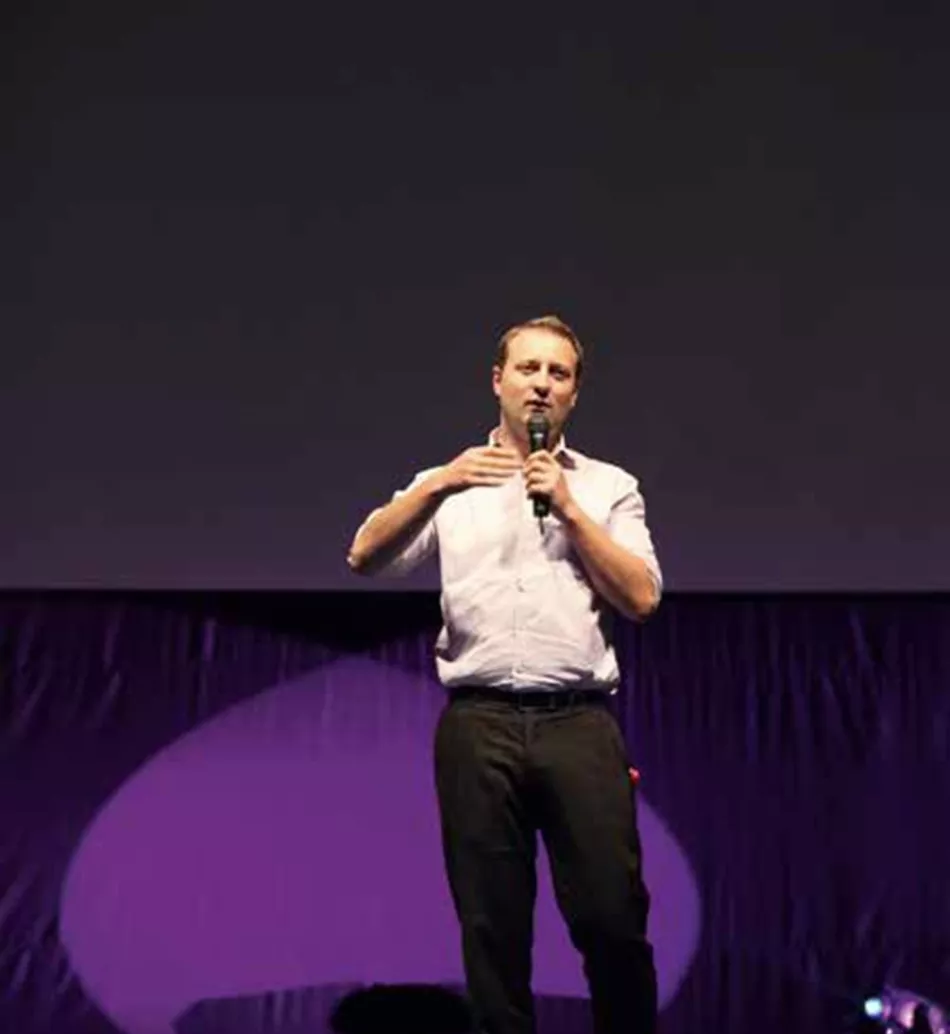"Innovation is in our nature"

We spoke to Laurent Haug, entrepreneur, investor, writer and renowned innovation specialist about innovation and the impact of new technologies.
For him, innovation is not necessarily related either to technology or to the future! It should first and foremost be thought of as a natural phenomenon that all humans must understand to survive.
Laurent Haug, could you give us your most general definition of the concept of innovation?
Innovation is a natural Darwinian phenomenon. For a project related to this subject, I consulted a biologist and have drawn striking parallels! Survival depends on the ability to adapt constantly, therefore to innovate. If you think of innovation as a phenomenon, you are faced with an ongoing Darwinian show.
Is this show a comedy, a drama or a tragedy?
A play in three acts. First, there is the initial, rising stage if we are talking about enterprise. You have to prove yourself, take risks, venture into the unknown. To me, this is the most interesting stage. After the rise, there follows consolidation, preserving power and status. Finally, there is fall: we get over confident, become blind and lose agility by wanting to preserve our comfort. We put on weight and we are overtaken by those who are faster! What is amazing in society is that all entities are at one of these three stages. You can observe this phenomenon at the level of countries, companies and even on an individual scale. At a geopolitical level, China and Korea are rising, USA have reached the end of domination and have started falling, France, Italy and Greece have been destroying themselves.
So it is a tragedy indeed!
No, it isn’t, because it is cyclical. China had already been a great power in the past, before declining and now rising again. Nokia used to be a company considered untouchable, before dramatically declining with the emergence of smartphones. These cycles occur when we forget that it is taking risks that generates value. Risk is the foundation of innovation. In the world of technology, Microsoft is a good example. They went through a crisis starting in the mid-nineties, when the internet changed everything. They were overtaken by Apple and Google. Now they are coming back, because they have finished their decline. They have questioned themselves and are now ready for a new start. They managed to create fresh impetus, whereas Apple seems to be losing momentum.
How do you explain the decline of such strong companies?
Simply, because these companies are made up of human beings. It is hard to fight again for something that you have already conquered. Innovating is exhausting. You have to accept to live with uncertainty. The fact of not knowing where you will be in six months, whether the market will want to take what you are working on.
It is hard to maintain the same intensity even when you have reached the top, never to rest, to continue the sleepless nights. Because this is what you need to do to create a revolutionary product! I think there is a certain logic in all this, just like in the theory of evolution. There is a regulation phenomenon. When you have a lot of resources, the hunger that drives your quest for more weakens. This leaves more space for the others and for redistribution of wealth.
Is innovation always closely associated with uncertainty?
Yes, uncertainty and risk go hand in hand with innovation, there is a strong link with change and survival. A person living in a country at war and hitting the road because his house is being bombed is innovative: he has no other choice but to reinvent his life, to start the future with a clean slate, risk everything all over again. In a way and through no fault of their own, refugees are entrepreneurs and innovators. A person who lands in New York with a single dollar in his pocket will have to innovate. This is how 65% of the top managers of US technology corporations are first or second generation immigrants. They often had no other choice but to build themselves a better future. A rich person, on the contrary, will tend to ask for help from the others to solve his problems, or write cheques to get rid of them.